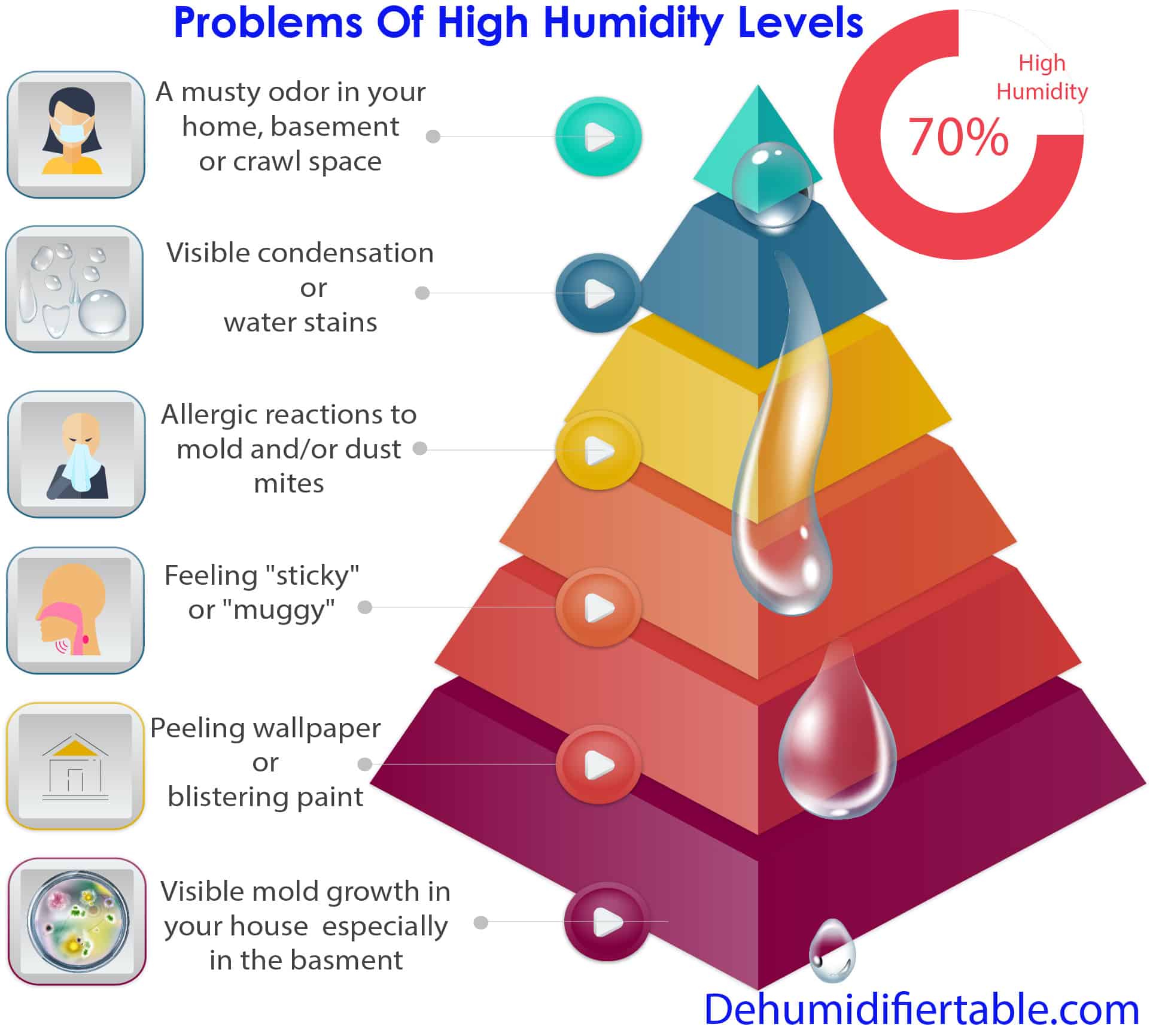Ideal Humidity Range for Sleep: What Is The Best Humidity Level For Bedroom

The ideal humidity range for a comfortable and healthy sleep environment is crucial for a good night’s rest. Maintaining optimal humidity levels in your bedroom can significantly impact your sleep quality and overall well-being.
Impact of Humidity on Sleep
Humidity, the amount of moisture in the air, plays a significant role in our sleep quality. Both low and high humidity levels can negatively affect our sleep.
- Low humidity can lead to dry skin, irritated sinuses, and nasal congestion, making it difficult to breathe comfortably. This can disrupt sleep patterns and cause frequent awakenings.
- High humidity, on the other hand, can create a stuffy and uncomfortable environment, making it challenging to fall asleep and stay asleep. It can also contribute to mold growth, which can trigger allergies and respiratory problems.
Maintaining Ideal Humidity Levels
To maintain the ideal humidity range in your bedroom, consider the following tips:
- Use a humidifier: During dry seasons or when the air is particularly dry, a humidifier can add moisture to the air, preventing dryness and improving sleep quality.
- Use a dehumidifier: If the air is too humid, a dehumidifier can remove excess moisture, creating a more comfortable sleeping environment.
- Ventilate your bedroom: Regularly open windows and doors to allow fresh air to circulate, reducing humidity levels.
- Avoid drying clothes indoors: Drying clothes indoors can significantly increase humidity levels, making it difficult to maintain a comfortable sleep environment.
- Keep plants in your bedroom: Certain plants, like peace lilies and spider plants, can naturally regulate humidity levels, absorbing excess moisture and releasing it back into the air as needed.
Factors Influencing Optimal Humidity

The ideal humidity level for a bedroom can vary depending on several factors, including the climate, season, and personal preferences. These factors can influence the comfort and health of individuals sleeping in the room.
Climate and Season, What is the best humidity level for bedroom
The climate and season significantly influence the optimal humidity level in a bedroom. In humid climates, the air naturally contains more moisture, and maintaining a lower humidity level might be necessary for comfort. Conversely, in dry climates, the air may be too dry, requiring the use of humidifiers to increase moisture levels. Seasonal changes also play a role, as humidity levels typically fluctuate throughout the year. For instance, during the winter, when heating systems are used, the air can become drier, necessitating the use of humidifiers to maintain a comfortable level.
Personal Preferences
Individual preferences also influence the optimal humidity level. Some people prefer a drier environment, while others prefer a more humid environment. These preferences can be influenced by factors such as skin type, allergies, and health conditions.
Respiratory Conditions and Allergies
Individuals with respiratory conditions, such as asthma or chronic obstructive pulmonary disease (COPD), may benefit from maintaining a specific humidity level in their bedroom. For instance, excessive dryness can irritate the airways, while excessive humidity can trigger the growth of mold and mildew, which can exacerbate respiratory problems. Similarly, individuals with allergies may experience more severe symptoms in a humid environment, as dust mites and other allergens thrive in moist conditions.
Ventilation and Air Circulation
Proper ventilation and air circulation are essential for regulating humidity levels in a bedroom. Ventilation allows for the exchange of fresh air, helping to remove excess moisture from the room. Air circulation helps to distribute moisture evenly throughout the room, preventing the accumulation of moisture in specific areas.
Methods for Measuring and Adjusting Humidity

Knowing the humidity levels in your bedroom is crucial for achieving optimal sleep quality and overall well-being. Accurate measurement and effective adjustment of humidity levels are essential to create a comfortable and healthy sleeping environment.
Measuring Humidity
To determine the humidity levels in your bedroom, you can use a variety of tools.
- Hygrometers are the most common devices for measuring humidity. They come in analog and digital forms, with digital hygrometers often offering additional features such as temperature readings and data logging. Analog hygrometers typically use a hair or a piece of animal membrane that expands or contracts based on the humidity level. Digital hygrometers use electronic sensors to measure humidity levels.
- Humidity Sensors are often integrated into smart home devices, such as thermostats and air quality monitors. These sensors provide real-time humidity readings and can be used to automate humidity control systems. Some humidity sensors can also be connected to smartphones, allowing you to monitor humidity levels remotely.
Adjusting Humidity
Once you know the humidity levels in your bedroom, you can adjust them using humidifiers and dehumidifiers.
Using a Humidifier
A humidifier adds moisture to the air, increasing the humidity levels. There are several types of humidifiers available:
- Cool-mist humidifiers use a fan to evaporate water into the air, creating a cool mist. These humidifiers are generally quieter and more energy-efficient than warm-mist humidifiers.
- Warm-mist humidifiers heat water to create steam, which is then released into the air. Warm-mist humidifiers are more effective at humidifying large rooms, but they can be noisy and consume more energy than cool-mist humidifiers.
- Ultrasonic humidifiers use ultrasonic vibrations to create a fine mist. These humidifiers are generally quiet and energy-efficient, but they can sometimes produce white dust.
Using a Dehumidifier
A dehumidifier removes moisture from the air, reducing the humidity levels. There are two main types of dehumidifiers:
- Compressor dehumidifiers use a refrigerant to cool the air, causing condensation to form. This condensate is then collected in a reservoir or drained away. Compressor dehumidifiers are generally more powerful and efficient than desiccant dehumidifiers.
- Desiccant dehumidifiers use a material called desiccant to absorb moisture from the air. Desiccant dehumidifiers are less powerful than compressor dehumidifiers, but they can operate in colder temperatures and are more portable.
Comparing Humidifier and Dehumidifier Types
| Type | Features | Efficiency | Cost | Cool-mist humidifier | Quiet, energy-efficient | Moderate | Low | Warm-mist humidifier | Effective for large rooms, can be noisy | High | Moderate | Ultrasonic humidifier | Quiet, energy-efficient | Moderate | Moderate | Compressor dehumidifier | Powerful, efficient | High | Moderate | Desiccant dehumidifier | Portable, operates in colder temperatures | Low | Low |
|---|
What is the best humidity level for bedroom – A comfortable bedroom humidity level is crucial for a good night’s sleep. While achieving the ideal range can be tricky, you can enhance your bedroom’s ambiance with a touch of sunshine. Consider incorporating bright yellow bedroom curtains to create a cheerful and welcoming atmosphere.
This vibrant color can boost your mood and create a sense of warmth, even on cloudy days. Remember, a well-ventilated room with proper humidity control will help you maintain a comfortable sleep environment.
Maintaining the ideal humidity level in your bedroom is crucial for a comfortable sleep. A range of 30% to 50% is generally considered optimal, promoting a restful night’s sleep and preventing dryness or stuffiness. While focusing on your bedroom’s atmosphere, why not add a touch of whimsy with strawberry shortcake bedroom curtains ?
These charming curtains can transform your bedroom into a playful haven, adding a sweet touch to your sleep sanctuary. Remember, a well-ventilated bedroom with the right humidity level is key to achieving a peaceful night’s rest.
